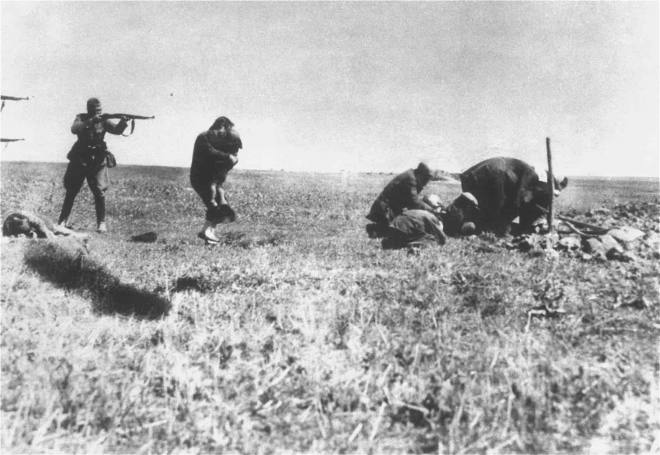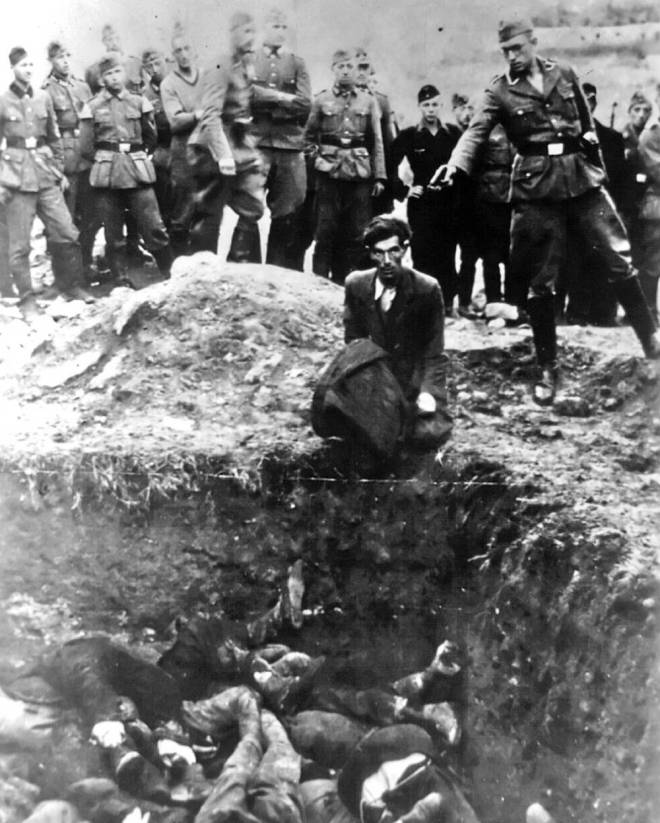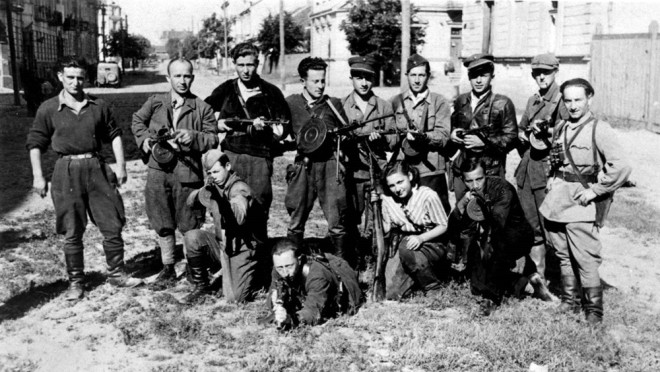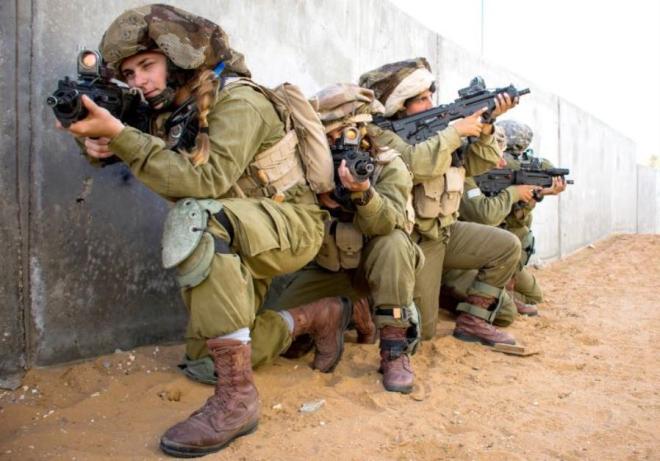Does it make sense to say that we should learn lessons from the Holocaust? I believe it does – and they are clear.
For Jews, Menachem Begin, speaking in 1981, said it best:
“First, if an enemy of our people says he seeks to destroy us, believe him. Don’t doubt him for a moment. Don’t make light of it. Do all in your power to deny him the means of carrying out his satanic intent.
 Murder of Jews in Ivangorod 1942
Murder of Jews in Ivangorod 1942
Second, when a Jew anywhere is threatened, or under attack, do all in your power to come to his aid. Never pause to wonder what the world will think or say. The world will never pity slaughtered Jews. The world may not necessarily like the fighting Jew, but the world will have to take account of him.”
 The last Jew in Vinnitsa shot at edge of pit 1941
The last Jew in Vinnitsa shot at edge of pit 1941
In the 1930s the Jews of Germany, and much of Europe, thought that they belonged to the most advanced and progressive civilisation the world had ever seen. They could not believe that the people who had thrilled with them to Beethoven and Goethe, and together with them had probed the secrets of the universe and the heart of the atom, would unleash on them a merciless barbarism as murderous as that of Genghis Khan. But they did.
 Partisan Brigade of Abba Kovner & Benjamin Levin at Vilna Liberation 1944
Partisan Brigade of Abba Kovner & Benjamin Levin at Vilna Liberation 1944
For Gentiles, it is even simpler. Because of our long history of being persecuted, Jews have the most acute antennae for it. So if a Jew calls out antisemitism, don’t question them. Believe them. If you can’t bring yourself to support them, at least don’t try to silence them.
If, however, you dismiss Jewish accusations of antisemitism as being in bad faith, and support anti-Jewish remarks as ‘fair comment’; if you tell Jews that after 75 years it’s high time they ‘got over’ the Holocaust; if you condemn the government and armed forces of Israel for preventing the murder of its citizens by any means necessary; and, most wickedly of all, if you try to demoralise young Jews by lying to them that “Israel is doing to the Palestinian Arabs what the Nazis did to the Jews”; then, deny it though you may, I am afraid you are committing acts of antisemitism.

